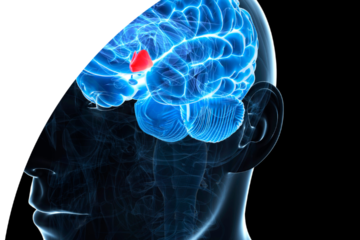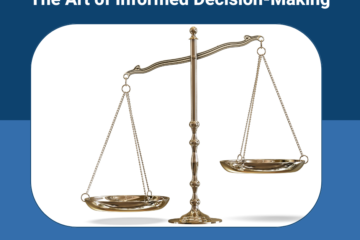
Introduction:
In a world where technology is always getting better, digital landscapes are always changing, and social and cultural norms are always shifting, personal development has become an unwavering pillar of success, resilience, and happiness. It’s not just a term, a fad, or a short-lived trend. In the complicated 21st century, embracing personal growth is not only a strategic benefit, but also an essential tool for personal and professional growth as a whole. This helps people stay at the forefront of change and new ideas.
The Landscape of the 21st Century
With the rapid growth of technology, better global connections, and the all-pervasive power of social media, we’re now part of a digital tapestry that makes us more linked than ever. But this huge web of links makes many people feel even more alone, even though, in some ways, it brings us closer together. It’s a complex world where the excess of virtual interactions can sometimes overshadow real human connections. This can make people feel more alone, stressed out, and unsure of where they really belong in this vast digital space. This changing century has not only changed the way work, relationships, and our sense of self-worth work, but it has also given us an enticing challenge: we must constantly adapt, change, and reinvent ourselves in a world that is always changing around us.
Why Personal Development Matters More Now
Adaptability in the Digital Age:
The digital age isn’t just about the rise of new technologies; it’s also about how these technologies are changing businesses, changing job roles, and creating new career paths. As familiar places change and new chances come up that no one has ever heard of before, personal growth becomes an anchor. It not only helps people learn and master new skills, but it also helps them build the mental agility to switch gears as needed. Personal development encourages a growth mindset, which stresses the importance of being flexible and always learning. This makes sure that people don’t just survive the rapid changes, but thrive in them and stay relevant in their chosen careers.
Emotional and mental strength:

The information overload and frequent global crises of the 21st century have made many people more anxious and stressed. With all the news and problems at home and at work, it can be hard to keep up. In this kind of situation, emotional and mental strength are no longer just nice to have, they are necessary. Personal growth helps people build a strong foundation within themselves. It shows you how to deal with emotional storms, bounce back from losses, and face uncertainty with a calm, centered attitude. By building this resilience, people can face problems head-on and make smart choices even when they are under a lot of stress.
Fostering Real Connections:
There are a lot of ways to meet in the digital world, but real, deep human connections seem to be on the decline. In a world full of shallow interactions, the skills of deep, meaningful conversation, empathy, and understanding become more important than ever. Personal development stresses how important it is to improve these interpersonal skills and pushes people to get past their digital masks and build relationships based on confidence, authenticity, and mutual respect. This not only improves personal relationships, but also opens the way for professional partnerships that work well together.
Unlocking Untapped Potential:
Self-doubt, fear, or constrained beliefs are frequently what prevent people from realizing their full potential. Personal growth is a push that helps people learn more about themselves and realize who they are. With the right tools, plans, and way of thinking, they can break out of the chains that they have put on themselves. Personal growth encourages people to think about themselves and pushes them to question their limiting beliefs and replace them with more positive ones. This journey of inner change opens up a world of possibilities, allowing people to explore unexplored territory, come up with new ideas, and reach goals they once thought were out of reach.
Personal growth is a lighthouse in a world that is constantly changing and growing. It helps people not only get through these changes, but also come out of them stronger, wiser, and more connected to their true potential.
Rising Up: Embracing the Journey of Growth
Personal growth is more than just going to workshops or reading the latest best-sellers on self-help. At its heart, it is a complex, never-ending journey through self-awareness, learning, growth, and overall well-being. Let’s talk more about what this trip is like:
Self-awareness:
Self-awareness is the most important part of human growth. Not only do we need to know what our strengths are and celebrate them, but we also need to know what our weaknesses are and how we act. By learning more about our own minds, we can better understand how we respond, what drives us, and what choices we make. This makes it possible to connect with oneself more deeply, which leads to real self-improvement and growth. We can’t figure out how to move forward until we know where we are.
Continuous Learning:
Our personal and professional lives are always changing, as is the world around us. What’s important today might not be so important tomorrow. So, the idea of ongoing learning isn’t just about learning a new skill or language. It also means keeping up with changes in the workplace, in society, and in technology. It’s about developing an insatiable desire to learn and a willingness to change, so we’re always on the cutting edge and ready to take advantage of new possibilities.
Setting and Achieving Goals:
Goals give you direction and a reason to do something. Personal growth helps people set clear, measurable goals, whether they are short-term goals or long-term visions. But it’s not enough to just set these goals; you also need to make plans for how to reach them. This process needs discipline, commitment, and the ability to evaluate and change one’s method when needed. It’s about making your dreams come true through hard work and careful planning.
Building relationships:
People are social by nature. Personal growth is about improving yourself, but it also shows how important it is to build strong, honest relationships. These relationships, which are based on trust, understanding, and mutual respect, not only make our daily lives better, but they are also crucial to our success at work. Personal growth helps people improve their communication, empathy, and listening skills, which makes it easier for them to build and keep close relationships.
Holistic Well-Being:

In our busy, fast-paced lives, it’s easy to forget about our own well-being. In addition to mental and emotional health, physical health is also part of personal growth. In a world full of distractions and problems, it helps us remember what balance is all about. It talks about how important it is to have a clear mind, stable emotions, and a healthy body. Personal growth makes sure that people aren’t just going through the motions of life, but are instead immersed in the richness of living fully and appreciating every moment.
In conclusion, the path to human growth is both broad and narrow. It’s about getting in touch with yourself deeply, making goals for the future, and walking the path with confidence, compassion, and a desire to keep growing.
Facing the Future with Confidence and Purpose

There may be a lot of problems in the 21st century, with all of its technical marvels, social and cultural changes, and changing global landscapes. Yet, if you look carefully, there are just as many chances waiting to be taken. Personal growth is our guide as we move through this changing time and look to the future. It helps us face the future not with fear but with a clear sense of what we want to do. With the right skills, more knowledge, and unshakeable confidence, we are ready to not only accept change but also shape it, making the most of every chance and leaving a permanent mark on the canvas of time.
Conclusion:
“Rise Up” is more than just a motivational phrase. It’s a serious promise we make to ourselves to improve and keep growing. In the complex mosaic that is the 21st century, the worth of personal growth becomes clear with every problem we face and every choice we make. This value shows up in how we turn problems into stepping stones, see changes as exciting new adventures, and accept growth as an essential, non-negotiable part of our journey through life. In this fast-paced, always-changing world, the road of personal growth isn’t just a good idea; it stands out as the only way to find overall happiness. So, as we move into the future, let’s make sure that our steps are not just about moving forward, but also about rising with purpose, changing with grace, and always going beyond our own limits.

Personal Development Preparedness Assessment
1. On a scale of 1–10, how would you rate your current level of self-awareness?
2. Do you regularly set aside time for self-reflection?
3. How often do you set personal goals?
a) Weekly
b) Monthly
c) Quarterly
d) Rarely or never
4. When faced with a challenge, do you view it as:
a) A learning opportunity
b) A setback
c) Just another part of life
d) An overwhelming obstacle
5. How often do you seek feedback from peers, friends, or mentors to better understand your strengths and weaknesses?
6. Are you currently reading, or have you recently read, a book or article related to personal growth or self-improvement?
7. How do you typically react to constructive criticism?
a) Embrace and learn from it
b) Defend and justify my actions
c) Ignore it
d) Feel personally attacked
8. Have you attended any personal development workshops, seminars, or courses in the past year?
9. Do you have a mentor or someone you look up to for personal or professional guidance?
10. How often do you engage in activities that push you out of your comfort zone?
11. Are you familiar with the concept of a “growth mindset” versus a “fixed mindset”?
12. How do you handle failure?
a) Use it as a learning experience
b) Try to forget it and move on
c) Dwell on it and feel defeated
d) Avoid situations where failure is a possibility
13. Do you regularly practice any mindfulness activities, such as meditation or journaling?
14. Can you identify a recent situation where you recognized a personal bias or limiting belief and worked to overcome it?
15. Do you have a personal vision or mission statement that guides your decisions and actions?
16. How often do you assess and realign your personal or professional goals?
17. How would you rate your current level of life satisfaction on a scale of 1–10?
18. Do you believe that your personal growth directly impacts your professional growth?
19. When was the last time you learned a new skill or hobby just for the sake of personal enrichment?
20. Do you feel you have a clear understanding of your core values, and do you actively try to live by them?
After completing the assessment, individuals can reflect on their answers to determine areas where they are already strong in their personal development journey and areas that might need further attention or exploration.



0 Comments